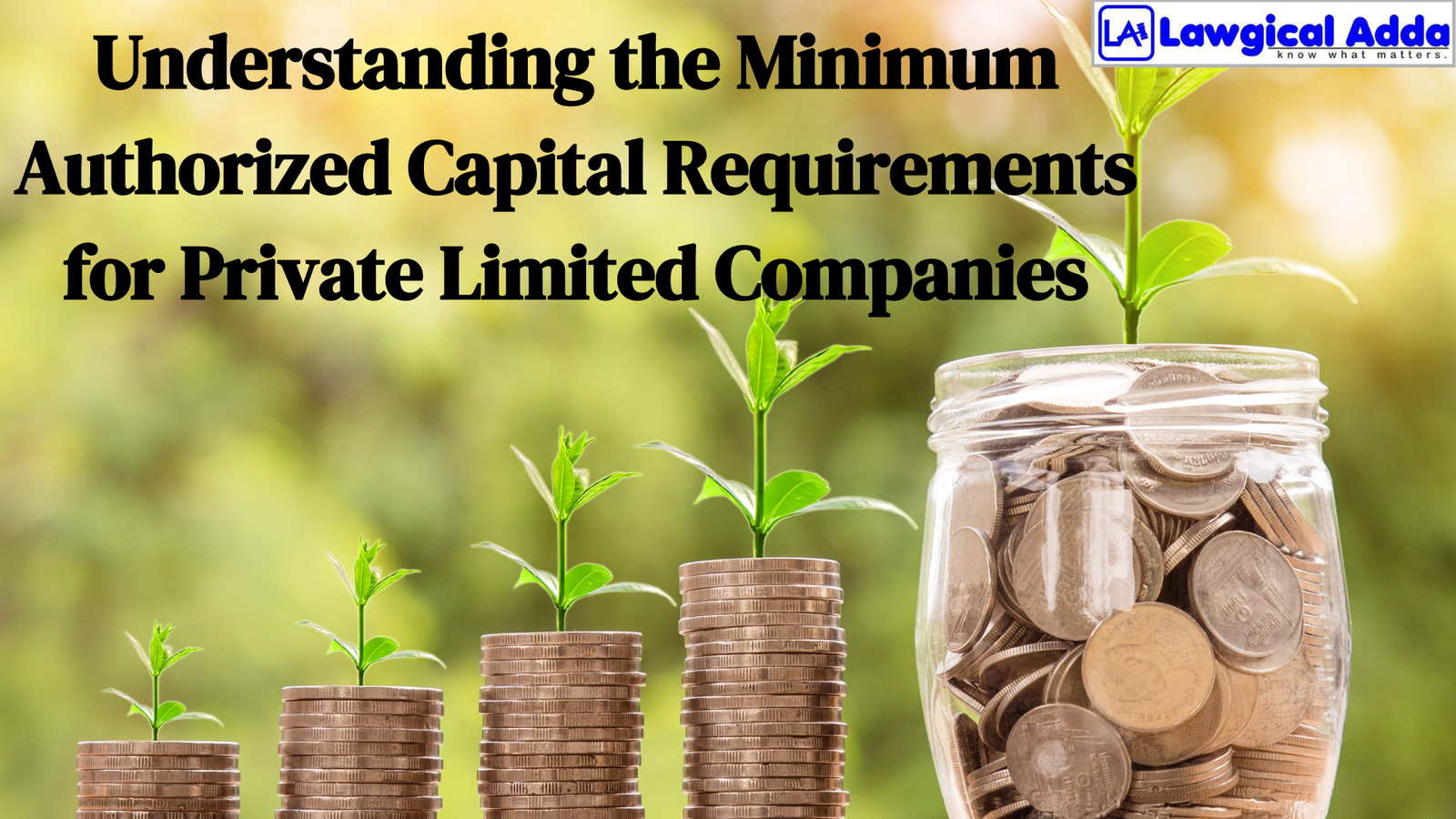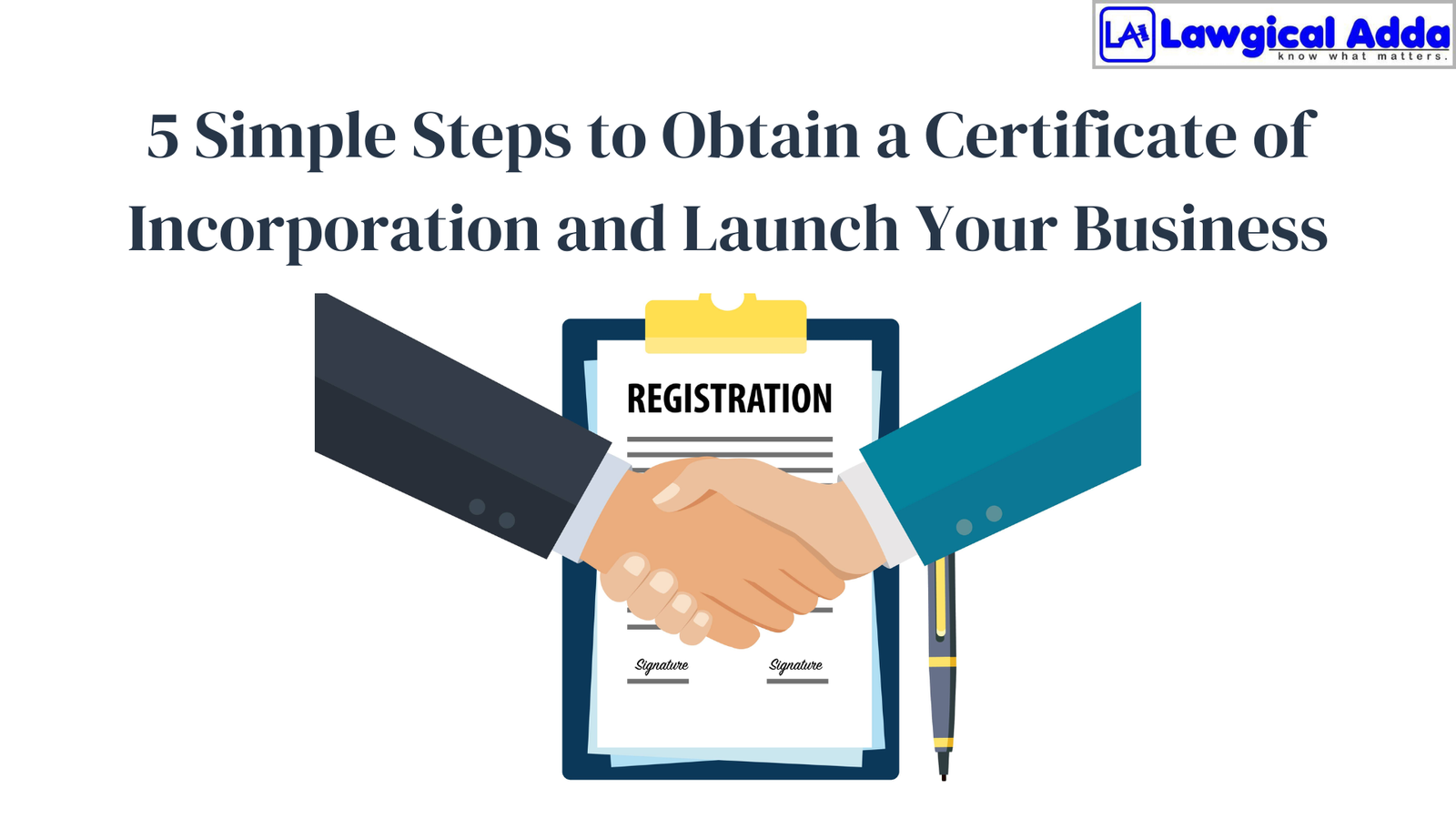Understanding the Minimum Authorized Capital Requirements for Private Limited Companies

Table of Contents
Introduction
The Companies Act 2013 has laid various guidelines regarding the company’s share capital. One common question we all face is about the minimum authorized capital for private limited companies.
If you want to know everything about capital and the minimum authorized capital for private limited companies, read the blog to learn more.
What is Capital?
Capital is the financial resource that companies use to fund their operations. It is the company’s funds that help them finance their operations, investments, and growth. Capital is an important aspect of any business.
It helps companies acquire assets, cover expenses, and grow their presence. It helps firms execute their strategies. Capital can be gained from various sources. Depending on its source, capital can be classified into share capital and debt capital.
Capital is gained externally from investors, loans, and equity markets. A private limited company can gather equity share capital, which is raised from the issue of shares to shareholders.
What are the Types of Share Capital?
There are various types of share capital under the Companies Act 2013. Share capital represents the amount of money that the company raises by issuing shares to its shareholders. It represents the majority of the company’s equity structure and can be classified into various types:
Authorized Share Capital
The Authorized share capital is the maximum amount of capital a company is authorized to raise by issuing shares. This is specified in the company’s memorandum of association. It represents the upper limit of share capital that the company is allowed to issue to shareholders.
Issued Share Capital
This refers to a portion of the authorized capital that the company has issued to shareholders. This portion can be subscribed to by the company shareholders. It is the part of the shares that have been allocated for investors to purchase.
It can be less than or equal to the authorized capital. However, its value cannot extend beyond authorized share capital. You can increase your authorized share capital by following the legal compliance laid down by the Companies Act 2013. Check out Lawgical Adda for hassle-free, professional services.
Subscribed Share Capital
This part of the issued capital is subscribed (or taken up) by investors. It represents the shares that investors have agreed to purchase and can also be less than or equal to the issued capital.
Paid-up Share Capital
This is the amount of capital that shareholders have paid to the company in exchange for shares. It represents the actual funds that are received by the company from its investors or It is less than or equal to the subscribed capital.
Called-up Share Capital
This is the portion of the subscribed capital that the company has called upon shareholders to pay. Companies may call up capital in installments, requiring shareholders to pay a portion of the subscribed amount over time.
Uncalled Share Capital
This represents the portion of the subscribed capital that has yet to be called up by the company. It remains unpaid until the company requests payment from shareholders.
What is Authorized Share capital?
The authorized share capital, also known as the nominal capital or registered capital, refers to the maximum amount of share capital that a company is permitted to issue as per its memorandum of association.
It represents the ceiling limit of the company’s capital structure. It provides the company with flexibility in raising funds from shareholders over time.
The concept of authorized capital is vital for various reasons:
Legal Framework
It sets rules, regulations, and procedures for the company’s capital structure, ensuring that it only issues shares as authorized.
Flexibility in Fundraising
It allows the company to issue additional shares in the future without altering its memorandum of association, facilitating more accessible access to capital when needed.
Investor Confidence
It assures investors of the company’s capacity to raise funds and expand its operations, which improves investor confidence.
Regulatory Compliance
It ensures that the company complies with regulatory requirements related to capital structure and share issuance.
What is the paid-up share capital?
Paid-up share capital is the actual amount of money a company receives from shareholders in exchange for shares. It represents the portion of the subscribed capital for which shareholders have made full payment.
Paid-up capital is an essential measure of the company’s financial strength and stability, reflecting the funds available for business operations and growth.
Authorized Share Capital vs. Paid-up Share Capital
There are significant differences between Authorized Share Capital and Paid share Capital. Understanding the difference between authorized share capital and paid-up share capital is essential for fully understanding a company’s capital structure. Here are the critical differences between authorized share capital and paid-up share capital:
Understanding the concept
Authorized Share Capital is the maximum amount of share capital a company can issue per its memorandum of association. Paid-up Share Capital is the amount of money the company receives from shareholders in exchange for shares.
Purpose
The Authorized Share Capital sets a legal limit on the company’s ability to issue shares and provides flexibility for future fundraising. The Paid-up Share Capital represents the actual funds available for the company’s operations and growth.
Flexibility
Authorized Share Capital allows the company to issue additional shares up to the authorized limit without modifying its memorandum of association. However, Paid-up Share Capital reflects the company’s current financial strength based on the funds received from shareholders.
Investor Confidence
Authorized Share Capital reassures investors about the company’s potential to raise funds in the future. Paid-up Share Capital enhances investor confidence by demonstrating the company’s financial resources.
What is the Minimum Authorized Capital for a Private Limited Company?
The Companies Act 2013 and its regulations typically specify the minimum authorized capital. In India, the Companies Act 2013 initially required private limited companies to have a minimum authorized capital of INR 1 lakh.
However, this requirement was later abolished, and there is currently no mandatory minimum authorized capital for private limited companies in India. Companies are free to decide their authorized capital based on their business needs and financial plans.
Conclusion
In conclusion, capital is the lifeblood of any business, and understanding the various types of share capital, including authorized and paid-up capital, is essential for comprehending a company’s financial structure.
While authorized capital sets the legal framework for fundraising, paid-up capital reflects the actual funds available for operations. Companies must carefully consider their capital structure to achieve their business objectives and ensure long-term success.
The minimum authorized capital for private limited companies depends on the Companies Act 2013, and the significance of minimum paid-up capital lies in ensuring financial stability, credibility, regulatory compliance, operational efficiency, business growth, risk mitigation, and shareholder confidence.
For more in-depth insights and detailed information on various legal topics, follow Lawgical Adda. Stay updated with the latest articles, expert analyses, and practical advice on corporate law, company regulations, and much more. Join our community and enhance your legal knowledge today!







